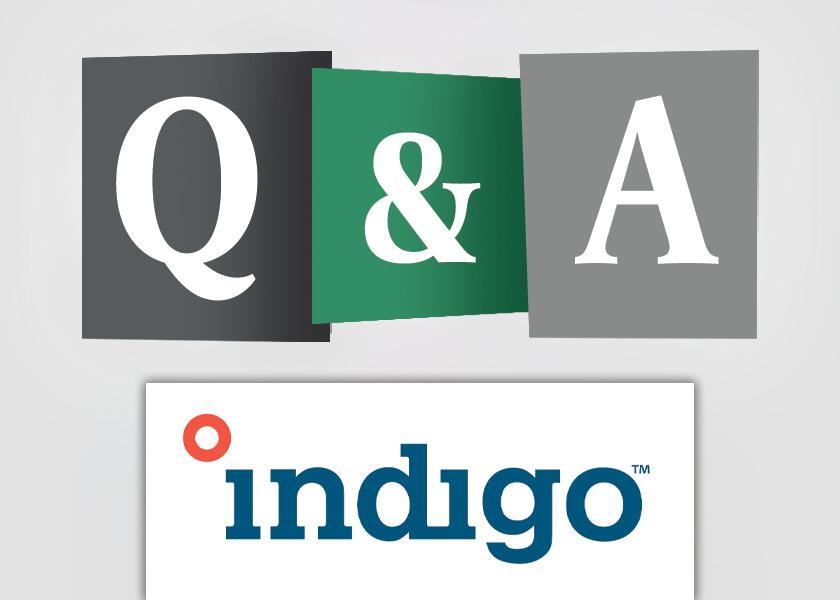Q&A With Indigo Ag’s C-Suite

This year, Indigo Ag will reach its 10-year anniversary. Started as biologicals-focused company Symbiota, its current leaders refer to the past decade as a “journey” landing where Indigo Ag focuses its business today.
“We’re moving from being an overly enthusiastic startup to commercializing what we are doing,” says Ron Hovsepian CEO of Indigo Ag. “We are shifting into the next phase of maturity as a company – a trusted partner that is delivering critical sustainability solutions.”
Hovsepian came into the role of CEO three years ago, and he highlights how his leadership team made the strategic transition from being a disruptor to a partner in the industry.
“When I arrived, the company had seven big ideas, and they were in the early vision test phase,” Hovsepian says. “The business model was to be a disruptor three years ago. We exited the businesses that conflicted with our partners, for example, Marketplace. At the macro level, you can’t be in a physical supply chain and be a disruptor without physical assets.
Some call the time period that built up to the seven ideas shifts or pivots, and Hovsepian says it’s about simplification of the business and its approach to the market.
“It’s really about simplification around sustainability—and simplification in how we go to market with partners,” he says. “A big shift we made was to focus on customers and product innovation. Our Biological products were the first, and it continues to lead our sustainability journey and product portfolio. At the same time, we’ve delivered digital products that best serve this emerging market.”
Along the way, Indigo Ag has made big news in the tech investment community. As just a few examples, the company raised $56 million when they rebranded as Indigo Ag in 2016, and then six months later they raised another $100 million. In 2017, they raised $203 million. A $273 million raise from convertible equity debt in January 2020 was followed by a $270 million fund round in August 2020. Today, they announced a $250 million capital funding round.
Hovsepian and John Frederick, chief financial officer, say this funding round was different. With increased interest rates, credit quality spreads increasing, and a changed dynamic in venture capital, the leaders say this fundraising round was tougher.
“I’ve never experienced diligence like we’ve seen,” Frederick says. “And in this last fund raise, we wanted to fully fund the business, but the market was so dislocated. We discounted intrinsic value, which was the price at which we transacted to get the capital. It’s not a reflection of valuation, it was a reflection of the discount to get the funding.”
In 2020, the company reportedly had a $3.5 billion valuation.
When asked about its one-time high valuation and the following persistent title of being a “unicorn” Hovsepian says, “I don’t believe in unicorns, and I don’t believe in fairy dust. I believe in facts and delivering. I understand what real companies look like. With this capital we are well positioned to boost farm revenues by increasing our investment in Indigo’s unique science and technology programs. That’s the real impact.
He adds the company projects itself will hit the inflection point of profitability by Q4 of 2024, and he sees the company’s intrinsic value at over $1 billion. Instead of focusing on “valuation,” he prefers the focus on the “validation” that this investment brings to the business.
“We raised capital to make sure we got full funding,” Hovsepian says. “Included in that group are current investors and new investors who see the value of the company. Last year we grew 40% in revenue. Through the first seven months of his year, revenues grew 90% compared to 2022. We are nearly doubling in the market. And now, we are further positioned to help farmers take advantage of the sustainability value and the durability of that value that comes from the Indigo programs.”
He also emphasizes Indigo’s product development, which includes the recent launches of a bionematicide and a biofungicide. Indigo cites customer retention rate for biological products by volume is 130%. The company says its pipeline is poised to launch 38 biological products over the next three years.
And he boasts about Carbon Indigo’s growth and peer reviewed status with its programs. through its carbon program, the company has paid farmer participants more than $5 million so far for registry-verified ag carbon credits. Another digital product, Market+ Source helps companies reduce their Scope 3 emissions and is on track to deliver 30 million bushels in 2023.
Hovsepian says Indigo will continue to focus on its vision for simplifying the monetization of sustainability for farmers.
When asked about the biggest change at Indigo since you took the helm, Hovsepian said, “It’s our attitude We have really become strong listeners and want to be the independent, trusted partner to the industry, not the disruptor.”







